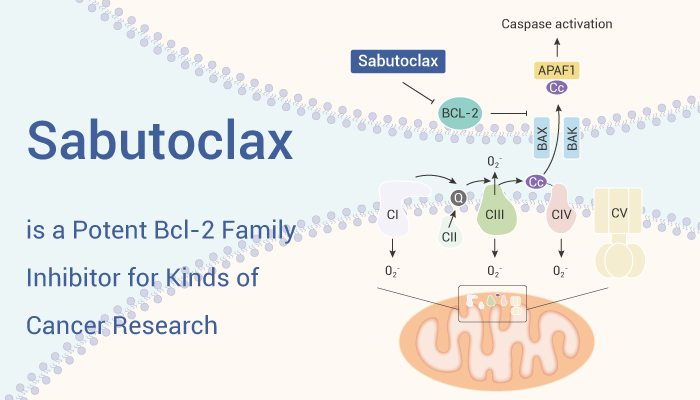The Bcl-2 family consists of a number of evolutionarily-conserved proteins that share Bcl-2 homology (BH) domains. And it is most notable for their regulation of apoptosis, a form of programmed cell death, at the mitochondrion. The Bcl-2 family proteins consists of members that either promote or inhibit apoptosis, and control apoptosis by governing mitochondrial outer membrane permeabilization (MOMP), which is a key step in the intrinsic pathway of apoptosis. These proteins govern mitochondrial outer membrane permeabilization (MOMP). And they can be either pro-apoptotic (Bax, Bad, Bak and Bok among others) or anti-apoptotic (including Bcl-2 proper, Bcl-xL, and Bcl-w, among an assortment of others). Human genes encoding proteins that belong to this family include: Bak1, Bax, Bal-2, Bok, Mcl-1.
Survivin is a member of the inhibitor of apoptosis (IAP) family. The survivin protein functions to inhibit caspase activation, thereby leading to negative regulation of apoptosis or programmed cell death. This has been shown by disruption of survivin induction pathways leading to increase in apoptosis and decrease in tumour growth. What’s more, Survivin expression is highly regulated by the cell cycle and is only expressed in the G2-M phase. Survivin localizes to the mitotic spindle by interaction with tubulin during mitosis and may play a contributing role in regulating mitosis. And it is highly expressed in most cancers and associated with chemotherapy resistance, increased tumor recurrence, and shorter patient survival, making antisurvivin therapy an attractive cancer treatment strategy.

Sabutoclax is a Potent Bcl-2 Family Inhibitor for Cancer Research
Sabutoclax is a potent and effective Bcl-2 Family (Bcl-2, Bcl-XL, Mcl-1, Bfl-1) inhibitor with IC50 values of 0.32 μM, 0.31 μM, 0.20 μM, and 0.62 μM, respectively. And it increases Bax, Bim, PUMA and survivin expression.
In Vitro, Sabutoclax (0.001-10 μM; 72 h) potentially inhibits cell growth of human prostate cancer, lung cancer cell line. And Sabutoclax (0.01-1 μM; 24-48 h) potentially induces cell apoptosis in human diffuse large B-cell lymphoma cell line. In addition, Sabutoclax (0-15 μM; 48 h) uptrgulates the level of pro-apoptotic proteins in chemoresistent cells. And in Vivo, Sabutoclax (1-5 mg/kg; i.p.; every two days in 18 D) reduces tumor growth in M2182-bearing athymic nude mice.
In conclusion, Sabutoclax is a potent Bcl-2 family inhibitor for kinds of cancer research.
Reference:
[1]. J Med Chem. 2010 May 27; 53(10):4166-76.
[2]. Cancer Lett. 2018 Jun 1:423:47-59.